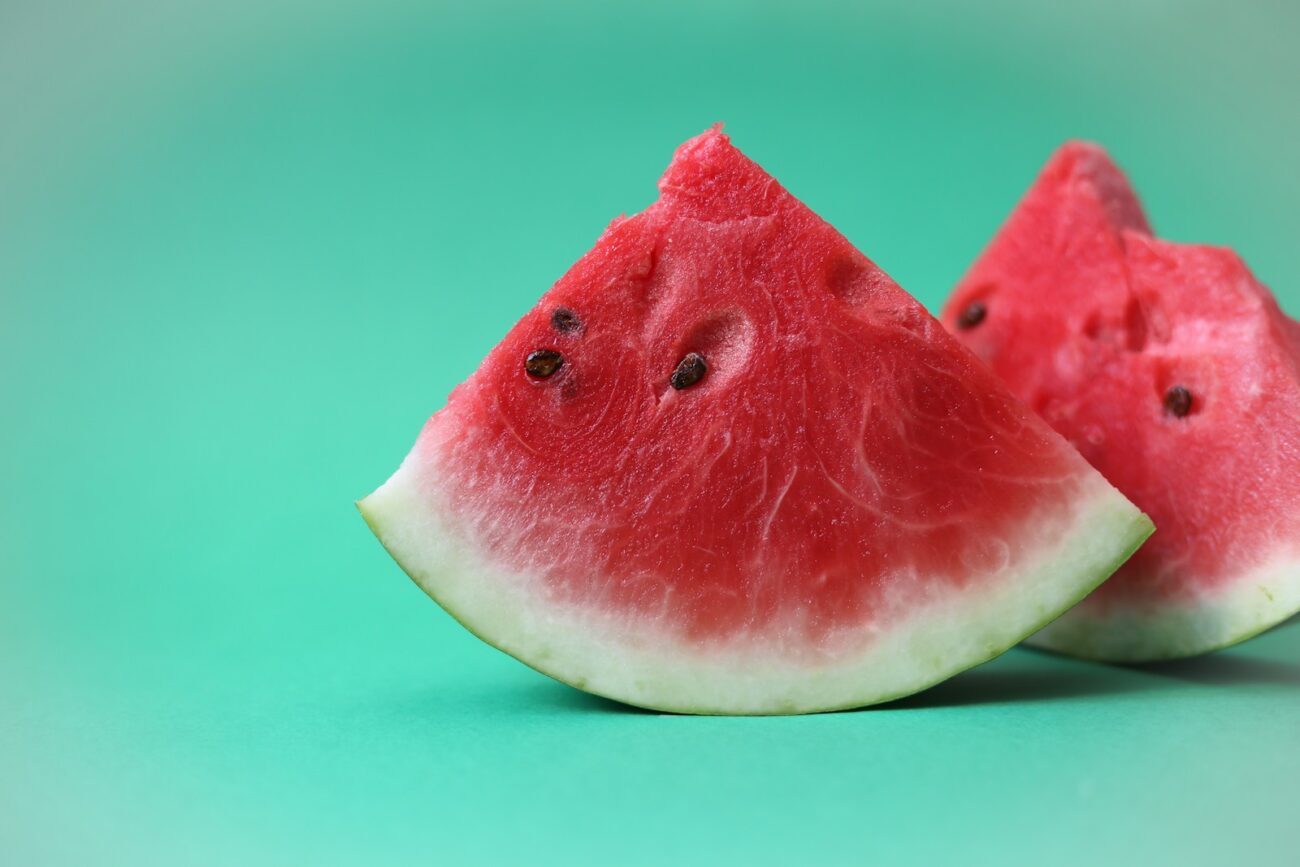When summer rolls around, few things are as refreshing as biting into a juicy slice of watermelon. But did you know that this beloved fruit is more than just a tasty treat? Watermelon is a nutritional powerhouse, offering a wide range of health benefits while keeping you hydrated and satisfied.
In this blog post, we’ll explore the nutrition profile of watermelon, its impressive health benefits, and some creative ways to enjoy it.
Nutritional Profile of Watermelon
Watermelon is low in calories but high in essential vitamins, minerals, and antioxidants. Here’s a breakdown of what you’ll find in a 1-cup (152-gram) serving of diced watermelon:
- Calories: 46
- Carbohydrates: 11.5 grams
- Fiber: 0.6 grams
- Protein: 0.9 grams
- Fat: 0.2 grams
- Vitamin C: 12.5 mg (21% of the Daily Value)
- Vitamin A: 865 IU (17% of the Daily Value)
- Potassium: 170 mg (5% of the Daily Value)
- Magnesium: 15 mg (4% of the Daily Value)
- Lycopene: 6,890 micrograms (a powerful antioxidant)
Watermelon is also about 92% water, making it an excellent choice for staying hydrated, especially during hot weather.
Health Benefits of Watermelon
Beyond its delicious taste, watermelon offers a host of health benefits. Here are some of the top reasons to make this fruit a regular part of your diet:
- Hydrates the Body
With its high water content, watermelon is a fantastic way to stay hydrated, which is essential for maintaining energy levels, supporting digestion, and regulating body temperature. - Rich in Antioxidants
Watermelon is packed with antioxidants like lycopene, vitamin C, and beta-carotene. Lycopene, in particular, has been linked to a reduced risk of heart disease, certain cancers, and age-related eye disorders. - Supports Heart Health
The lycopene and citrulline in watermelon may help lower blood pressure, improve blood flow, and reduce the risk of heart disease. Citrulline, an amino acid found in watermelon, is converted into arginine in the body, which helps relax blood vessels and improve circulation. - Aids in Muscle Recovery
Watermelon’s citrulline content may also help reduce muscle soreness and improve recovery time after exercise, making it a great post-workout snack. - Promotes Skin Health
The vitamins A and C in watermelon are essential for healthy skin. Vitamin C helps produce collagen, which keeps your skin firm and elastic, while vitamin A supports skin repair and regeneration. - Supports Digestive Health
Watermelon contains a small amount of fiber, which aids in digestion and promotes regular bowel movements. Its high water content also helps keep the digestive system running smoothly. - May Help Manage Weight
Low in calories and high in water, watermelon is a satisfying snack that can help you feel full without adding extra calories to your diet.
How to Enjoy Watermelon
Watermelon is incredibly versatile and can be enjoyed in countless ways. Here are some ideas to get you started:
- Fresh and Simple
Slice it up and enjoy it as a refreshing snack on a hot day. - In Salads
Add cubed watermelon to salads for a sweet and juicy twist. Pair it with feta cheese, mint, and a drizzle of balsamic glaze for a classic summer salad. - Smoothies
Blend watermelon with other fruits like strawberries, pineapple, or mango for a hydrating and nutritious smoothie. - Watermelon Salsa
Dice watermelon and mix it with cucumber, jalapeño, red onion, and lime juice for a refreshing salsa that pairs perfectly with grilled fish or chicken. - Frozen Treats
Freeze watermelon chunks for a cool, healthy snack, or blend them into a slushie for a guilt-free dessert. - Hydrating Beverages
Make watermelon water by blending chunks of watermelon and straining the juice. Add a splash of lime or mint for extra flavor.
Tips for Choosing and Storing Watermelon
- Choosing a Ripe Watermelon: Look for a firm, symmetrical watermelon with a creamy yellow spot on one side (this indicates it ripened on the vine). Tap it—if it sounds hollow, it’s ripe.
- Storing Watermelon: Whole watermelons can be stored at room temperature for about a week. Once cut, store it in the refrigerator for up to 5 days.

Watermelon is more than just a summertime favorite—it’s a nutrient-dense superfood that offers a wide range of health benefits. From keeping you hydrated to supporting heart health and aiding muscle recovery, this juicy fruit is a delicious way to boost your overall well-being.
So, the next time you’re looking for a refreshing and healthy snack, reach for a slice of watermelon.
Your body (and taste buds) will thank you!
Disclaimer: This blog post is for informational purposes only and is not intended to replace professional medical advice. Always consult with a healthcare provider before making significant changes to your diet.

